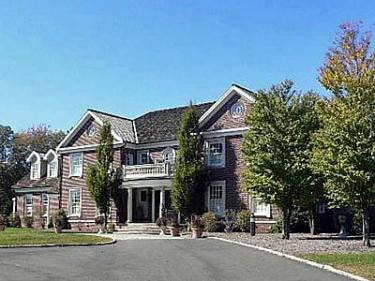
There is sometimes nothing more frustrating than a short sale. Banks typically take 90 days to six months, accept other offers if they are a dollar higher in the meantime, therefore never knowing if the home your are trying to buy will become a reality. So the news is that Bank of America and Wells Fargo, say they are making it easier for delinquent borrowers to avoid foreclosure by selling their homes for less than they owe on them.
Their efforts dovetail with a strategy unveiled last week by the Obama administration to promote such short sales.
Demand for short sales has burgeoned because falling home prices have made it impossible for many homeowners to get high enough prices to repay their lenders if they run into financial trouble, such as a job loss.
A short sale has an advantage over foreclosure for the homeowner because it is less embarrassing and does less damage to his or her credit. And for the lender, it is less costly than having to repossess, market and maintain a vacant property. Avoiding a foreclosure means keeping a house occupied which helps preserve a neighborhood.
However, because of the complexity of such transactions — including the need for approval of a sales price by lenders, investors and mortgage insurers — the sales often fall apart. Real estate agents complain that by the time they get an answer from the bank on an offer, the potential buyer has lost interest.
At Bank of America, the nation’s largest mortgage servicer, more than 60 percent of approved short sales do not close, which is why the bank wants to streamline the process, said BofA Senior Vice President David Sunlin by telephone Thursday.
Sunlin, who manages short sales for the bank, said the “bank’s first goal still is to negotiate a mortgage modification that will let a borrower keep his home —during those negotiations the bank can simultaneously obtain the documentation needed to qualify the borrower for a short sale if the modification doesn’t work”
Banks typically do not begin the lengthy process of qualifying a borrower for a short sale until it has received a purchase offer.
To expedite short sales, Bank of America has enlarged and updated staff training and set up a phone line dedicated to short sales that borrowers and their agents can use.
Sunlin said, ” in 60 to 90 days the bank will roll out a Web program it will use to find and track the short sales of houses with mortgages that it services. The Web portal also will accept qualifying documentation from clients wishing to do short sales.”
It typically takes 45 to 60 days for the bank to tell a client if a short sale offer can be accepted and up to 90 days if an investor must approve , with the goal for the banks is to shorten this time line.
By doing this, we should see more private sales instead of more sales of bank-owned (houses),”
Sunlin said short sales will also benefit from an amendment to President Barack Obama’s Making Home Affordable program announced last week that will standardize short sale application and acceptance forms. It also provides monetary incentives to servicers and helps cover relocation expense for homeowners.
David Knight, senior vice president at Wells Fargo Home Mortgage, said in an interview that his bank has been working many months to reduce delays in the short sale process. He said the bank is working closely with borrowers’ agents to increase the likelihood that the listing prices on a short sale will be accepted.
The lending and real estate industries have been on a crash course to learn about short sales since the housing market bust, Knight said. “The big challenge is none of us really understood the process,”
By the way, as of May 22, 2009, in Nevada County, there are 103 active short sales on the market and 55 short sales with contingencies, for a total of 158 short sales.









